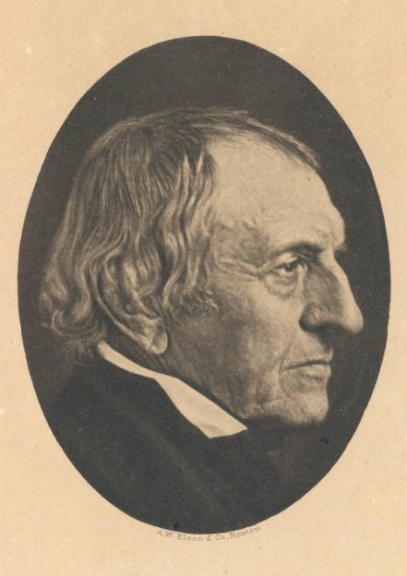Jeremiah Atwater

Back to Middlebury History Online
On the first day of November, 1800, the long hoped for charter had been signed and Middlebury College was ushered into existence. Three days later the first meeting of the corporation was held. The Rev. Jeremiah Atwater (1773–1858), who had been a tutor in Yale University (1795-99) and who was at this time principal of the Addison County Grammar School, was constituted President of the College as well as a College Trustee by the act of incorporation. Under his superintendence the college was immediately organized, and on the following day, November 5, seven students were admitted.
Atwater was a worthy man to inaugurate the new institution. He was born at New Haven, Connecticut, on December 27, 1773, and graduated at Yale University in 1793, the youngest of his class, and having already distinguished himself by his scholarly attainments. He was tutor at Yale from 1795 to 1799 when he was appointed Principal of the Addison County Grammar School on the recommendation of Dr. [Timothy] Dwight, then president of Yale University. Although he was appointed to the presidency of the college in 1800 he continued to act as principal of the Grammar School until 1805. With President Atwater, and constituting the entire faculty of the College, was Tutor Joel Doolittle of the Yale class of 1799. The first commencement–and in fact the first college commencement in Vermont–was held in 1802 when only one student, Aaron Petty, received the degree of A. B.; the next class numbered three, the third twelve, and the fourth sixteen; one of these sixteen was subsequently in Congress for eleven years. In 1808 twenty-three men took their degrees.
The College in its beginning was almost entirely destitute of funds; its total wealth, building, lands etc., did not amount to $5000. Up to the year 1814 the only building belonging to the institution was the “Old East College,” a wooden building erected for the Addison Country Grammar School in 1798 on the site now occupied by Twilight Hall. The tutors for many years were wholly supported by contributions of the citizens. Frederick Hall, in 1806 was appointed to the professorship of Mathematics and Natural Philosophy, which was then established with a very small salary, and in part sustained by a donation from Samuel Miller, Esq., one of the early benefactors of the college. In 1807, while Professor Hall was in Paris, an American gentleman by the name of Daniel Parker placed at his disposal the sum of $178. To this Professor Hall afterward added enough to bring the total sum up to $300. This was presented to the college under the name of the Parkerian fund, the income of which provides the prized for the freshmen speakers at the commencement contest.
Long before the charter had been given [six months], the Middlebury College Library had been established, and for several months previous to the organization of the college its books had been in circulation. In 1802 it contained five hundred volumes. Within the first few months of the college’s history the Philomathesian Society was formed for the improvement of the students, and the general literary culture of the college was under its direction. Its meetings were held weekly during the term, and it had an annual exhibition on the day preceding commencement. In 1804 the Philadelphian Society was formed, whose object was the cultivation of the moral faculties and the religious improvement of the members. In 1809 President Atwater resigned his office and his role of Trustee, and accepted a similar position at Dickinson College where he served as President until 1815. That same year he returned to New Haven, where he resided until his death, July 29, 1858.
Atwater Commons, one of the residential commons at Middlebury College, was named for him.

